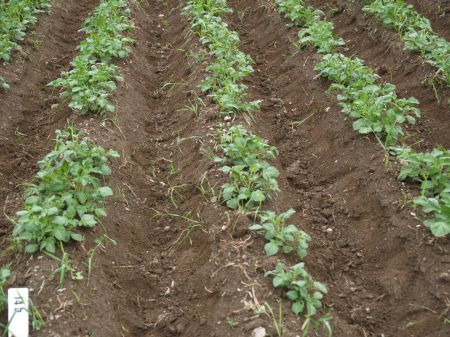Diseases play a greater role, especially in organic farming, because they cannot be treated in the same way as in conventional farming. In most cases, in organic farming there is only the possibility of prevention, which can be achieved through suitable crop cultivation measures. Diseases and pests can also be prevented by optimally designing crop rotation. Sometimes a corresponding time interval is sufficient until potatoes are grown again on the same field. Fungi in particular can survive in the soil for a very long time, which can then be reflected in the increased occurrence of certain diseases. Pests can also remain in the soil for years, causing massive damage that results in either a loss of yield or loss of quality. With regard to susceptibility to disease, there are indeed variety-specific differences that need to be investigated with this scientific activity. Not only potato varieties that are entered in the Austrian variety list should be observed in the course of this work, but also those varieties that are in demand by organic farmers. These include varieties that come from abroad and have already proven themselves among organic farmers there.
In addition, the very specific site conditions should be taken into account, i.e. recorded, such as climate, previous and catch crops, as well as the type of fertilization and any plant protection products that may be used - permitted in organic farming. The implementation of this scientific activity includes experiments on the experimental areas of the Organic Agriculture Department of the LFZ Raumberg-Gumpenstein with a larger variety spectrum, which consists of registered and unregistered varieties. In addition, surveys on practical farms that are located in the vicinity of the test areas and can be observed with the exact tests are also being considered.

Potato field
HBLFA Raumberg-Gumpenstein





